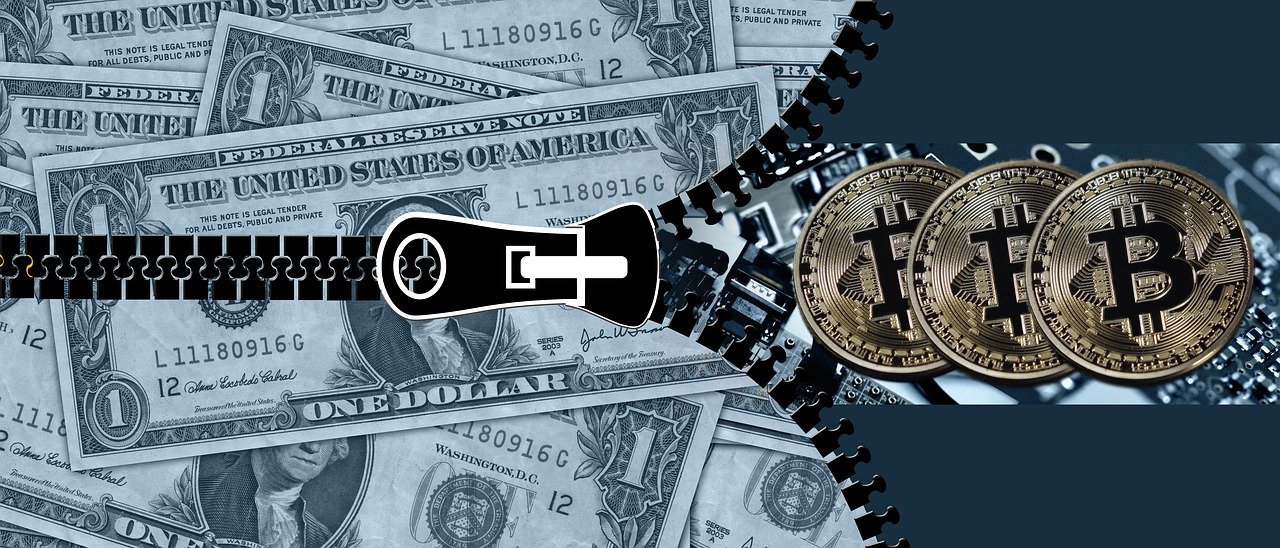The developing global economic crisis, deepened by months of industry on hold on account of the global COVID-19 pandemic, brings fresh impetus to the discussion of wealth protection. Under immediate threat is the current global standard of national fiat money, with quantitative easing measures creating even more inflationary pressure on traditional monetary systems.
As investors desperately seek to preserve the value of their wealth, and with traditional gold becoming scarce and difficult to obtain and secure, alternatives like Bitcoin and other digital commodities are once more thrust into the spotlight as potential safe-haven assets.
Failure of Cash
The year 2009 was when the world witnessed a global financial meltdown. During these troubled times, the obscure Satoshi Nakamoto launched a digital peer-to-peer electronic cash system called Bitcoin. The first block of Bitcoin, the genesis block, contained a brief message put there by Satoshi Nakamoto themselves:
“The Times 03/Jan/2009 Chancellor on brink of second bailout for banks”
Referencing the frontpage headline of The Times on that date, the message is thought to be a warning about the actions of central banks and governments. A decade later, the same actions are being taken by governments around the world as countries frantically move to protect their crumbling economies, further brought to its knees by the COVID-19 pandemic.
To contain the virus, governments are forced to shut down businesses, limit people in their homes, leaving many without jobs. The US government’s relief package, possibly worth a whopping USD 1 trillion (and many other packages by different governments), has once again exposed that fiat has no value as its supply can be increased anytime. Increasing inflation, compounded by dwindling incomes from unemployment and the general overall economic slowdown, have led to people seeking alternatives for storing their wealth that do not fall in value like fiat.
Bitcoin: a Safe Haven or Not?
One alternative drawing a lot of attention is the cryptographically-secured digital asset Bitcoin, which was the center of discussion for a panel of industry experts hosted by Coin Journal.
During the discussion, the panel also expressed their opinion on how the current situation has created (or not) the interest in the leading cryptocurrency as a means of storage of wealth and value.
Simon Peters, chief market analyst for social trading platform eToro, was firmly on the side of Bitcoin’s role as a safe haven asset based on the manner of it has been traveling in the same direction of gold markets in almost direct opposition to traditional fiat. The data backs this theory up, as well. He explains, with “a 77% increase in new registrants whose first action was to invest in Bitcoin” it’s evident that new investors view Bitcoin as a safe haven asset, not least because it has features remarkably like precious metal, such as a finite supply and resistance to inflation.
Concave founder Wayne Chen was keen to second that opinion, and points out how the ongoing coronavirus pandemic has provided a case study for Bitcoin’s use as a store of value and hedge against financial uncertainty. Where once gold was the popular alternative for money to take flight to in times of trouble, Bitcoin is coming up as an alternative asset that does the same.
CEO of TAAL, a BSV blockchain service provider, Jerry Chan took an opposing view, however, questioning Bitcoin’s seemingly close correlation to the ebb and flow of the stock markets in the past few months. On the day WHO formally declared COVID-19 a pandemic, stock markets around the world were sent tumbling and Bitcoin followed suit. He explains:
“The coronavirus has certainly contributed to discrediting the idea of Bitcoin as a ‘safe haven’ asset in my view. While Bitcoin was expected to be a ‘flight to quality’ asset, much like gold, it declined in line with the stock markets, which has led to increased mistrust.”
Head of Global Markets at Huobi Group, Ciara Sun acknowledged Chan’s interpretation but backed her previous statement of Bitcoin often “decoupling from macroeconomic movements” by pointing at Bitcoin’s recovery which happened far quicker than that of stock markets. She said:
“Shortly after the March crash, there was some doubt from the traditional finance sector, but the ensuing weeks have proven Bitcoin to be quite resilient.”
Will Bitcoin continue in its pattern of resilience as the global crisis unfolds? However that outcome plays out, one thing right now is for sure — more and more investors will turn to Bitcoin as money seeks to flee the uncertainty of traditional markets.
To read the expert opinions in greater detail, read the exclusive interview on Coin Journal here.

